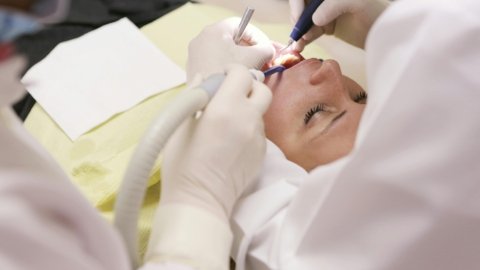General dentistry is your first line of defense for oral health. It gives you the tools to prevent problems before they start. Regular check-ups and cleanings catch issues early. When you care for your teeth, you avoid pain, save money, and maintain your smile. It’s not just about fixing problems; it’s preventing them. Think of brushing, flossing, and regular visits as a shield against cavities and gum disease. You need this shield to keep your mouth healthy. For dental care in Birmingham, MI, choosing a dentist committed to prevention is key. A good dentist will guide you, teach you, and support you. With the right care, you can dodge future dental problems. You deserve to feel confident about your oral health. Start with the basics and stick with them. This ensures strong teeth and gums for life. Remember, prevention keeps your smile bright and healthy.
The Importance of Regular Dental Visits
Regular dental visits are crucial. They are not just appointments on a calendar; they are essential for maintaining oral health. During these visits, your dentist can identify early signs of decay, gum disease, and even oral cancer. By addressing these issues early, you avoid complex treatments later. The American Dental Association recommends visiting your dentist at least twice a year. These visits include a thorough cleaning and a comprehensive exam.
Common Preventive Procedures
Preventive dentistry includes several common procedures. These are simple yet effective ways to protect your oral health. Here are three key procedures:
- Dental Cleanings: Removes plaque and tartar that regular brushing misses.
- Fluoride Treatments: Strengthens tooth enamel, making it more resistant to decay.
- Dental Sealants: Thin coatings applied to the back teeth to prevent cavities.
Comparing Preventive to Reactive Dentistry
Preventive dentistry and reactive dentistry serve different purposes. Understanding their differences helps you appreciate the value of prevention. Here’s a comparison:
| Aspect | Preventive Dentistry | Reactive Dentistry |
| Focus | Prevention of problems | Treatment of existing problems |
| Cost | Generally lower costs | Often higher costs due to complex procedures |
| Common Procedures | Cleanings, sealants, fluoride treatments | Fillings, crowns, root canals |
| Outcome | Long-term oral health | Resolution of immediate issues |
The Role of Education in Preventive Care
Education is a crucial part of preventive dentistry. Understanding the correct way to brush, floss, and care for your teeth at home is essential. Dentists play a significant role in teaching these habits. They also provide guidance on diet and lifestyle choices that impact oral health. Resources like CDC’s Oral Health section offer valuable information. Educated patients are empowered to make informed decisions about their dental care.
Your Role in Preventive Dentistry
You play the most significant role in preventive dentistry. Daily habits and choices create the foundation for oral health. Here’s what you can do:
- Brush twice a day with fluoride toothpaste.
- Floss daily to remove plaque between teeth.
- Limit sugary snacks and drinks.
- Wear a mouthguard during sports.
Conclusion
Preventive dentistry is a powerful ally in maintaining your oral health. It’s about staying ahead of problems and ensuring long-term well-being. Regular dental visits, common preventive procedures, and a commitment to good habits make all the difference. When you prioritize prevention, you invest in a healthy smile and a pain-free future. Remember, you have the power to protect your oral health. Take the first step today. Choose prevention and keep your smile bright for years to come.




